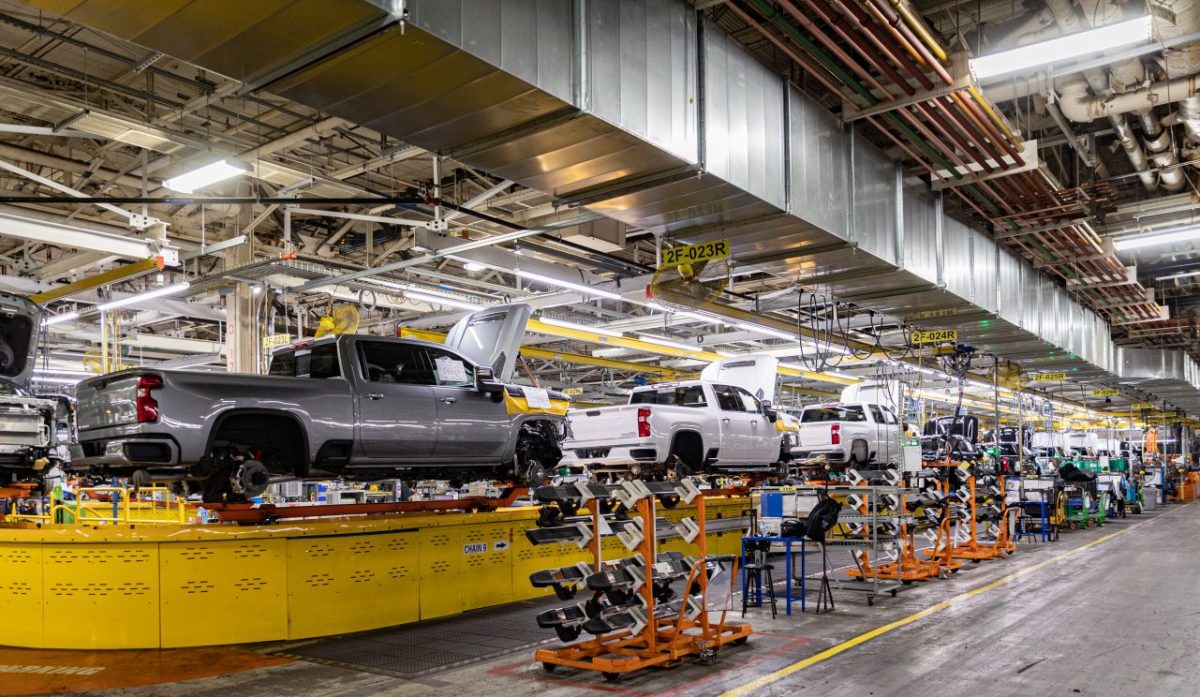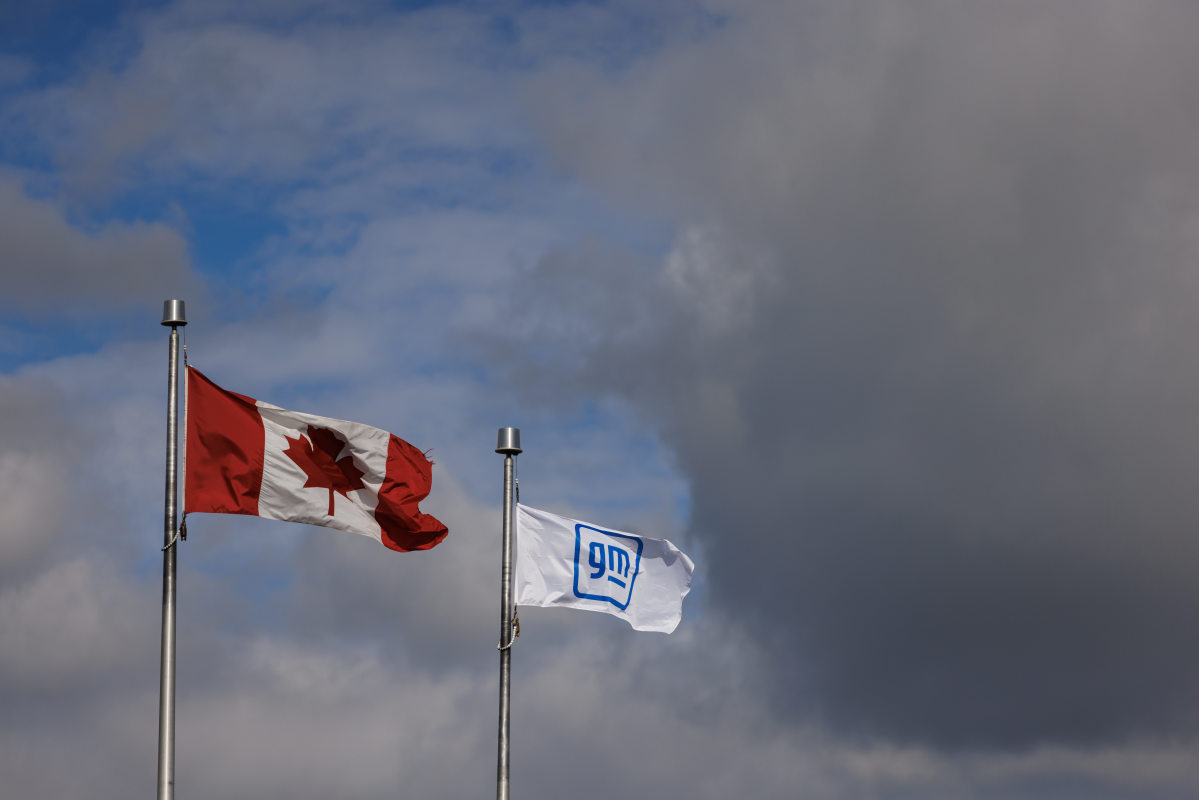Tariffs hit GM’s production once more
In a move meant to respond to the changing tariff-centric trade environment, General Motors slashed production at its Oshawa Assembly Plant in Ontario, Canada, to the dismay of labor organizers and local political leaders. The plant, which produces heavy-duty and light-duty Chevrolet Silverado pickup trucks, will be cutting production output from three shifts to two, effectively reducing the total number of pickups made there by about 50,000 per year. GM’s move comes less than a month after President Donald Trump imposed 25% tariffs on auto imports from Canada and shortly after he signed two proclamations that eased auto tariffs and established a credits program on imported vehicles.

General Motors
According to data from Automotive News, the Oshawa Assembly Plant built approximately 152,190 heavy-duty and light-duty Chevrolet Silverados in 2024. Oshawa’s output will be moved stateside, as Silverados are also built at factories in Flint, Michigan, and Fort Wayne, Indiana. In a letter to shareholders released this week, GM CEO Mary Barra wrote that the tariff situation would cost GM about $4 to 5 billion, while GM Canada President Kristian Aquilina said in a separate statement that the automaker needs to adapt where it can.
“Shifting trade policies, changing market dynamics, and growing global competition present new realities. We must adapt—and we are.” GM Canada President Kristian Aquilina said. “For GM, this means building more in Canada, for Canada. As part of this strategic realignment, we are adjusting truck production at Oshawa Assembly to better reflect Canadian market demand. These decisions are never easy, but they are necessary to preserve and strengthen Canada’s auto manufacturing base for the long term.”

General Motors
Production cuts mean job losses, union and political leaders say
Unifor, the Canadian autoworkers union that represents the workers at GM’s Oshawa plant, warns that the cuts will impact 700 of the 3,000 workers at the plant, adding that another 1,500 jobs will be lost within the supplier network that feeds the plant. In a statement, the union’s National President Lana Payne called the move a “reckless decision that deals a direct blow to our members,” and urged GM to reverse its decision, especially as President Trump and Canadian Prime Minister Mark Carney are due to meet in Washington to negotiate.
“Trump’s tariffs are designed to crush Canadian production — but GM doesn’t get a free pass to abandon its commitments, and the U.S. doesn’t get to free ride in Canada,” Payne warned. “GM has had strong support from workers, the community, and governments. Canadians invested millions to revive this plant. Cutting jobs now has consequences. The company has six months to fix this.”

General Motors
Similarly, Ontario Premier Doug Ford called the announcement “extremely tough” for autoworkers in Oshawa in a post on X (formerly known as Twitter), noting that the affected “are hardworking people who have helped build Ontario’s auto industry.” He also noted that GM reaffirmed its commitment to the Oshawa plant and that Ontario “remains a global leader in auto manufacturing, attracting billions in new electric vehicle and battery manufacturing investments.”
“We are not slowing down. We are building Ontario into the engine of North America’s auto future, and the workers of Oshawa and across the province are a key part of that.” Premier Ford said. “In the face of economic uncertainty caused by the chaos of President Trump’s tariffs and tariff threats, we will continue to fight every single day to attract new investment, secure good-paying jobs, and support workers and their families.”

Cole Burston/Bloomberg via Getty Images
Final thoughts
Unfortunately, these moves will happen as the Trump Administration’s economic plan comes into fruition, whether it be the parts that are installed into cars or, in this case, the vehicles themselves. Given that automakers like GM, Stellantis, and Honda have significant Canadian investments, I wonder how these tariff talks will go between Trump and Prime Minister Carney at the White House on Tuesday.